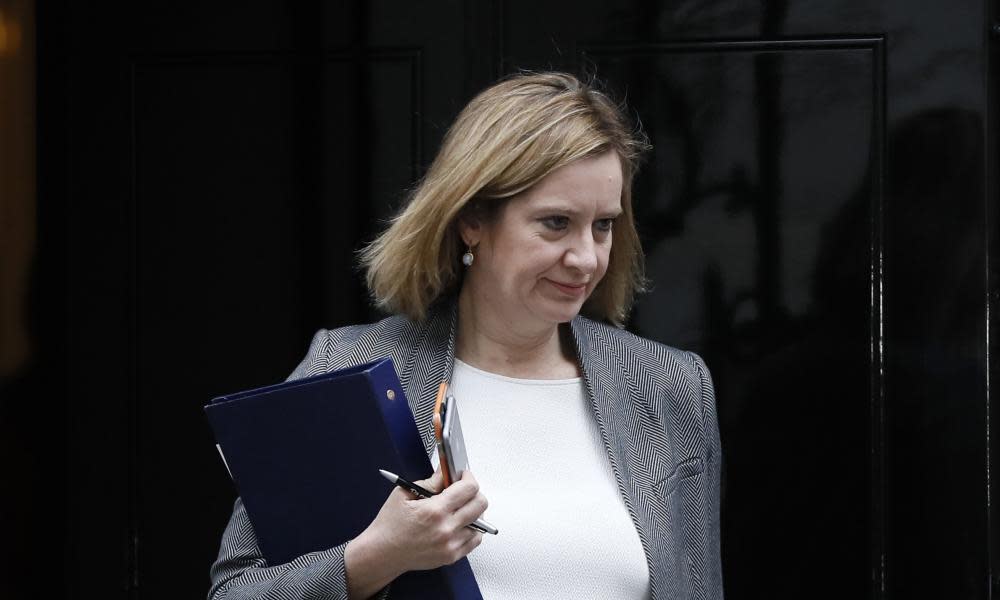Minister explains Rudd's 'necessary hashtags' after week of confusion

The Home Office has clarified what Amber Rudd meant when she suggested the government would hire people who “understand the necessary hashtags” as part of the government’s fight against extremist material online.
Prompted by a parliamentary question from Labour MP Louise Haigh, Home Office undersecretary Sarah Newton MP said: “The home secretary was referring to image hashing, the process of detecting the recurrence an image or video online.
“Hashing has proved effective in the removal of images of child sexual exploitation and has been used by a number of organisations including the Internet Watch Foundation and Interpol.”
Rudd had initially brought up the need to understand hashtags when speaking about encrypted messages and extremist content on the Andrew Marr Show.
When asked who she would bring in to help the government fight the problem she said she would turn to “the best people who understand the technology, who understand the necessary hashtags to stop this stuff ever being put up, not just taken down, but ever being put up in the first place are going to be them”.
Her comments caused confusion, with some concluding that the reference to scanning hashtags to prevent material being put up meant the government was proposing a Chinese-style system of banning certain words from social media.
Speaking after the parliamentary answer, Haigh said: “This home secretary’s understanding of technology may now be a running joke, but the questions facing the government are very serious. While she apparently doesn’t know her hashing from her hashtags, no one seems to know what policy she is actually considering for end-to-end encryption, which underpins vast swathes of our economy. Just last year, ministers said it was ‘fanciful’ to suggest legislation on it, yet the home secretary is now refusing to rule it out.”
Newton’s comments suggest that the government is supporting the use of technologies such as PhotoDNA to find and “fingerprint” specific extremist content such as recruitment videos and violent imagery.
PhotoDNA has been successfully used in the fight against online child abuse imagery, but is less well suited to extremist content due to the broader nature of such material. Nonetheless, in December 2016, social media firms including Facebook, Twitter, Google and Microsoft committed to contribute image and video hashes of terrorist content to a shared database, to speed discovery and takedown of material that breaches each site’s terms of service.
“By sharing this information with each other, we may use the shared hashes to help identify potential terrorist content on our respective hosted consumer platforms,” Facebook said in a statement. “We hope this collaboration will lead to greater efficiency as we continue to enforce our policies to help curb the pressing global issue of terrorist content online.”
In her parliamentary answer, Newton added: “The implementation of this database will help to clear large caches of known terrorist content from a range of online platforms.
“The home secretary is continuing to challenge communications service providers to improve the automation of detection and subsequent removal of new terrorist content online with the formation of a new industry led forum which will, among other things, lead on technical innovations.”
The term “communications service provider” is a catch-all for the companies which provide any sort of digital communications. Notably, it is used in the 2016 Investigatory Powers Act to define those companies that can be compelled to remove “electronic protection” – encryption – from communications or data.
Rudd has said the intelligence services need the ability to get into encrypted communications. That act already gives the government the legal authority to force encryption’s removal, leaving experts concluding that the government is wary of actually using the powers it has, instead preferring a fight through the press.

 Yahoo News
Yahoo News 
